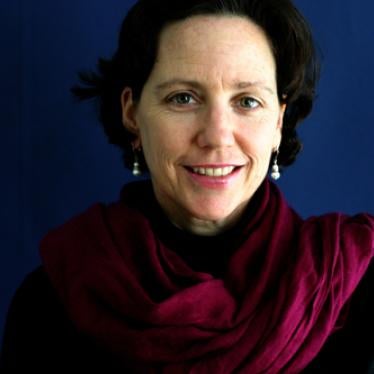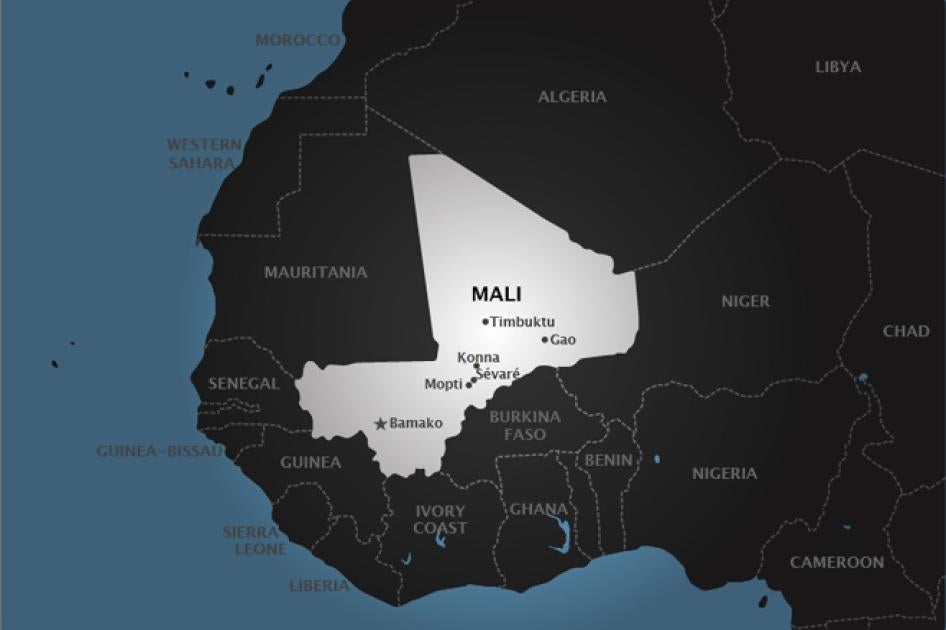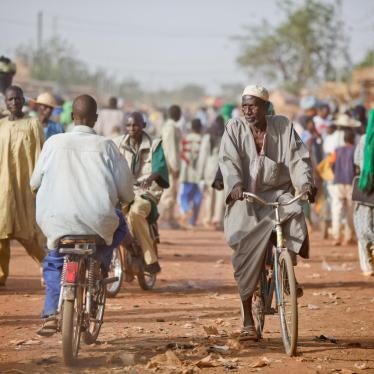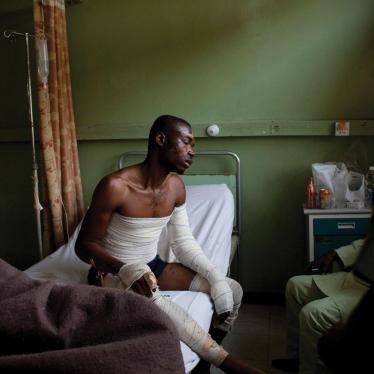He sat quietly drinking tea on a December morning in a village in central Mali. But Amadou, a local chief from the Segou region whose name I have changed for his protection, was worried.
“I know of 10 young men who’ve joined the jihadists in recent months,” he said. “And many more who sympathize.”
I was in Mali to research human rights abuses, something I’d done since 2012, when the country went through a spectacular meltdown after a near-simultaneous takeover by Tuareg separatists and Islamist groups linked to Al Qaeda in the north, and a military coup in the south.
The Islamists’ abusive regime in northern Mali was cut short in early 2013 by a French-led military intervention. Mali appeared to be on the mend as a United Nations peacekeeping mission was deployed, a relatively transparent election took place, a peace deal to end the crisis in the north was negotiated and billions of dollars in development aid were pledged.
But in 2015, a new Islamist group emerged in Mali’s previously stable central and southern regions. The group, which appears to be the latest franchise of Al Qaeda in the Islamic Maghreb and is often referred to as the Macina Liberation Front, has attacked military posts and executed mayors and councilmen. Its new area of operation is largely inhabited by the Peul ethnic group (also known as the Fulani), which makes up about 15 percent of Mali’s population.
Since early 2015, I’ve documented more than 25 execution-style killings by these Islamists. In March a village chief described how the militants gunned down his son in retaliation for his cooperation with the military. Residents of another village described seeing Islamist fighters detain a man accused of being an informant. Three days later, a resident told me, “the village woke up to find his head in front of his shop.”
I’ve also documented dozens of cases of torture and mistreatment by the Malian Army as it responded.
During my visits, Peul traders, herders and elders described a growing Islamist presence that exploited not only their poverty, but also their longstanding grievances with the government. They anxiously spoke of the Islamists’ recruitment success, driven, they said, by several factors.
Most often, people cited the government’s failure to protect them from banditry, which had grown since firearms began to proliferate in the early 1990s. Herdsmen described how bandits wielding AK-47s had taken their cows and sheep. “When you steal my animals you take with them the future of my children,” one resident told me.
Many credited the Islamists with drastically reducing banditry, something the army had failed to do. “Every time we call the authorities, they fail to show up,” a young man told me. Others said the Islamists had intervened to recover stolen motorcycles or cows. “The jihadists are the law now,” one said.
Villagers also described frequent abuses by the security forces and predatory behavior marring nearly every contact with government — demands for bribes for acquiring ID cards, vaccinating animals, passing checkpoints. Meanwhile, “there are few schools or clinics in our villages,” one resident said. Other people told me that the government failed to ensure justice in cases of intercommunal violence — tit-for-tat disputes over land or water — or security force abuses.
I’ve spoken with dozens of detainees, nearly all Peul, who described torture and mistreatment by the army. Amadou was one of 10 men hogtied, suspended by an iron bar and beaten. In some cases, their teeth were knocked out; others were burned or subjected to mock executions.
Policy circles pulsate with theories about what causes individuals and communities to support groups like Al Qaeda in the Islamic Maghreb. And for good reason: Premeditated mass murder of ordinary people in shopping malls, subways and hotels has become tragically common.
Scores of people have died in attacks by Islamist extremists in Mali, Burkina Faso and Ivory Coast. The attacks appeared to signal Al Qaeda in the Islamic Maghreb’s escalation of the “soft target” game, perhaps in competition with the Islamic State. Disturbingly, according to the elders I spoke with, several of the people who helped carry out these attacks were reportedly Peul.
As the world ponders what inspires violent extremism, policy makers should listen to people like Amadou, who are on the front lines. They insist that their young men are not being wooed over the Internet or joining out of religious conviction, but rather, as one imam told me, “because the jihadists provide a better alternative to the state.” Another man told me that many are unable even to recite the Quran.
The Peul elders and villagers say that the way to stop this has nothing to do with preventing terrorists from using social media or stemming the flow of foreign fighters. They want a government whose security forces protect instead of abuse them; whose civil servants serve instead of exploit them; and whose justice system ensures their right to redress.
Mali’s partners — especially France and the United States — have too often turned a blind eye to these problems. Instead, they should insist that Mali professionalizes and holds accountable the security forces; better supports the chronically neglected judiciary; and takes concrete action against corruption. Only when steps are taken to address these issues and people finally feel secure in their own basic rights may extremist groups start losing ground.









